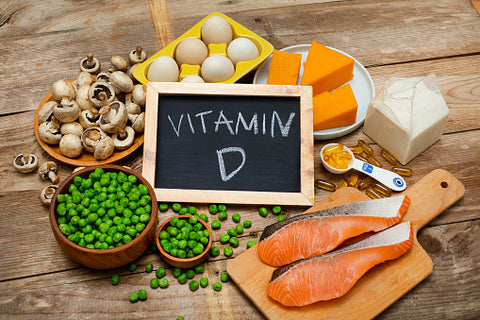
Vitamin D3 too much
Share
Vitamin D3 too much

Can the intake of too much vitamin D3 harm you?
Taking an appropriate amount of every nutrient keeps you healthy and in good shape, but determining the crowd is just as important. In addition, not all nutrients in the same amount are required for the body.
Some nutrients, such as B. carbohydrates make up most of their nutrient requirements because they are the connections that are responsible for the provision of metabolic energy. Other nutrients such as fats and proteins are required in a lower amount as carbohydrates. They are responsible for the structure and healing of your body and saturate.
Other nutrients, such as B. vitamins and minerals are only required in small quantities, but are of crucial importance for the efficient functioning of your body and do not make up the majority of your diet and provide you with energy.
Can the intake of too much vitamin D3 harm you?

As already mentioned, you need Body vitamin D3, like all vitamins, only in very small quantities. It doesn't necessarily have to make a large part of your diet. You can knowingly or unknowingly take too much vitamin D3 without knowing the consequences. But keep in mind that taking too much of any nutrient can harm you. This also applies to vitamin D3.
If you consume too much vitamin D3, this will lead to a catastrophe.
What happens if you take too much vitamin D3?
If you take too much vitamin D3, overload your body with vitamin D3. With a surplus of vitamin D3, you exhaust the vitamin D3 memory in your body (vitamin D3 is a fat-soluble vitamin and is therefore stored in the body). This then leads to a vitamin D3 hypervitaminosis. Toxicity is a term used to describe the hypervitaminosis.
What is vitamin D3 toxicity?

A dangerous excess of vitamin D3 in the body is called toxicity. Calcium absorption is the essential task of vitamin D3, so that hypercalcemia is caused by an increase in vitamin D3 in the body. The gastrointestinal signs of hypervitaminosis D3 are caused by this hypercalcemia. This includes nausea and vomiting, stomach pain and pancreatitis.
Vitamin D3 toxicity also leads to weakness and tiredness. Since vitamin D3 controls the calcium intake via the parathormone (PTH), toxicity also leads to kidney problems because the kidney is the place of work of PTH. It can lead to polyuria and heavy dehydration. One of the biggest problems caused by vitamin D3 toxicity is the formation of kidney stones. These are caused by a deposition of calcium in the kidneys.
In the worst case, with extreme overdose of vitamin D3, acute kidney failure may occur. This can lead to death.
Can vitamin D3 toxicity increase blood pressure?

As we have seen, vitamin D3 toxicity affects the gastrointestinal tract and the kidney system. But it also affects the cardiovascular system. It can easily lead to hypertension (increased blood pressure), which increases the stress of the heart.
Cardiac arrhythmias are another cause of an overdose of vitamin D3. An extended Q-T interval can be observed on the EKG.
Can the intake of too much vitamin D3 lead to rashes?
While taking Vitamin D3 as a dietary supplement In the case of skin diseases, an excess of vitamin D3 hurt your skin. Taking too much vitamin D3 can actually lead to rashes.
Studies have shown that the body reacts to too much vitamin D3 with the appearance of acne on the skin, which is due to the production of testosterone. This effect is observed in most people, not only with those who tend to acne.
Where does my body get too much vitamin D3 from?

Although there is not much vitamin D3 in daily food, dietary supplements often lead to an overdose of vitamin D3 because they contain considerable amounts of vitamin. An intake of such preparations for too long can manifest itself as a toxicity.
Vitamin D3+K2 10000 I.E.

It is generally recommended to take both vitamin D3 and vitamin K2 in order to achieve the best results, since both are decisive for the calcium homöostasis. Vitamin D3+K2 10000 I.E. is available on the market. It contains 10,000 i.E. Vitamin D3 in addition to vitamin K2. 10,000 I.E. is the perfect dose of vitamin D3, which you can take every day.
credentials
